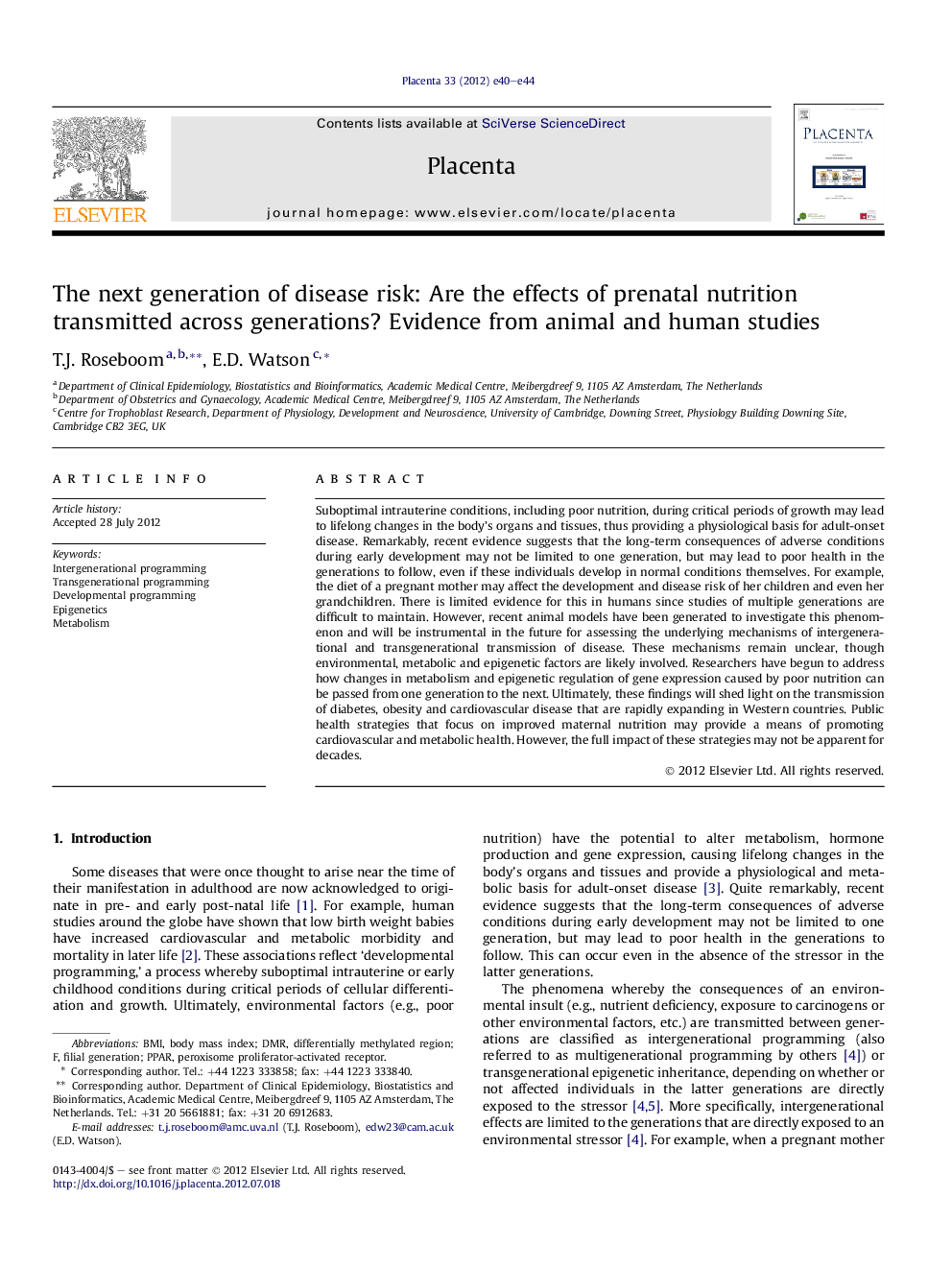| Article ID | Journal | Published Year | Pages | File Type |
|---|---|---|---|---|
| 2789348 | Placenta | 2012 | 5 Pages |
Suboptimal intrauterine conditions, including poor nutrition, during critical periods of growth may lead to lifelong changes in the body's organs and tissues, thus providing a physiological basis for adult-onset disease. Remarkably, recent evidence suggests that the long-term consequences of adverse conditions during early development may not be limited to one generation, but may lead to poor health in the generations to follow, even if these individuals develop in normal conditions themselves. For example, the diet of a pregnant mother may affect the development and disease risk of her children and even her grandchildren. There is limited evidence for this in humans since studies of multiple generations are difficult to maintain. However, recent animal models have been generated to investigate this phenomenon and will be instrumental in the future for assessing the underlying mechanisms of intergenerational and transgenerational transmission of disease. These mechanisms remain unclear, though environmental, metabolic and epigenetic factors are likely involved. Researchers have begun to address how changes in metabolism and epigenetic regulation of gene expression caused by poor nutrition can be passed from one generation to the next. Ultimately, these findings will shed light on the transmission of diabetes, obesity and cardiovascular disease that are rapidly expanding in Western countries. Public health strategies that focus on improved maternal nutrition may provide a means of promoting cardiovascular and metabolic health. However, the full impact of these strategies may not be apparent for decades.
